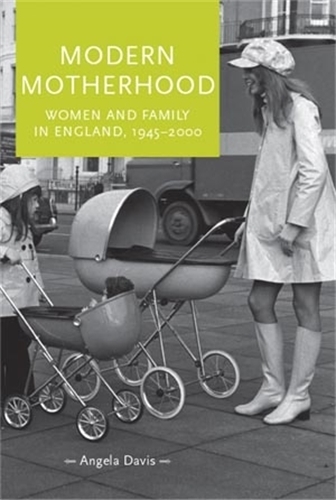
Modern Motherhood: Women and Family in England, 19452000
(Paperback)
Publishing Details
Modern Motherhood: Women and Family in England, 19452000
By (Author) Angela Davis
Manchester University Press
Manchester University Press
3rd June 2014
United Kingdom
Classifications
Tertiary Education
306.8743094209045
Winner of The Womens History Network Book Prize 2013 (UK)
Physical Properties
Paperback
260
Width 138mm, Height 216mm
Description
Winner of the Women's History Network Book Prize, 2013 This book examines women's experiences of motherhood in England in the years between 1945 and 2000. Based on a new body of 160 oral history interviews, the book offers the first comprehensive historical study of the experience of motherhood in the second half of the twentieth century. Motherhood is an area where a number of discourses and practices meet. The book forms a thematic study looking at aspects of mothers' lives such as education, health care, psychology, labour market trends and state intervention. Looking through the prism of motherhood provides a way of understanding the complex social changes that have taken place in the post-war world. This book will be essential reading for students and researchers in the field of twentieth-century British social history. However it will also be of interest to scholars in related fields and a general readership with an interest in British social history. 'A fascinating survey of women's experience of motherhood', 'eminently readable', 'a solid and thoughtful study', 'an outstanding piece of oral history', and 'ambitiously wide ranging'. The judging panel for the Women's History Network Book Prize, 2013. -- .
Reviews
Lifts the lid on the last great parenting taboo.'
Tracy McVeigh, The Guardian, 17/03/2012
'This book is published as part of Manchester University Press valuable Gender in History series that provides a vital publishing space for significant monographs.'
Family & Community History, Vol. 16/1, April 2013
Winner of the Womens History Network Book Prize, 2013
Modern Motherhood offers a fascinating and complex picture of womens lives as they negotiated the principal changes in post 1945 society.
The book is a useful addition to the growing literature on womens lives in the post-war world and the range of womens voices demonstrates the variety of experience that depended on the serendipity of location quite as much as social class and ethnicity. It addresses themes of interest to historians of education, especially those interested in constructions of gender through education inside and outside the classroom.
Stephanie Spencer, University of Winchester, History of Education, December 2016
Author Bio
Angela Davis is a Research Fellow in the Department of History at the University of Warwick
